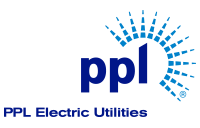Investigate Your School’s Energy Habits Activity
Print this page and follow the instructions to see how energy efficient your school is.
It’s a pretty good bet that your school (or school district) could save some money through energy conservation investments. You don’t have to be a super sleuth to figure out how to start saving. One of the best ways to save money is by changing the lights. Just as there have been great advances in compact fluorescent lights, there have also been great advances in fluorescent tube lighting, the kind of lights that probably shine above your head every day at school.

Class Projects
- Choose a class representative to ask the head custodian what type of fluorescent lights are used in your fixtures.
- Contact a lighting store or contractor to find out which are the most efficient fluorescent lights that could be used to replace your current lights. (Fluorescent lights include both the tube and the ballast. Efficiency improvements have been made to both components.) Find out how much energy (watts) these new lights use, how many hours they last, and their current cost.
- Estimate how many tubes and ballasts would be needed to replace all of the fluorescent lights in your school.
- Estimate how many hours the lights are on over a 12-month period.
- Multiply hours per year x number of lights x wattage to get the total watt-hours per year for both the current system and the more efficient system. Then divide by 1,000 to get kilowatt-hours (kWhs) per year.
- Multiply kWhs per year for both the current and the more efficient system by the school’s electricity cost ($/kWh) to get the annual cost of running the different systems.
- Challenge: If the school used the money from the annual energy savings to pay off the cost of the new lights, how long would it take to pay off the new lights?
- Share your research with the school custodian and principal.
- Think of other energy uses at your school that you might be able to investigate.

